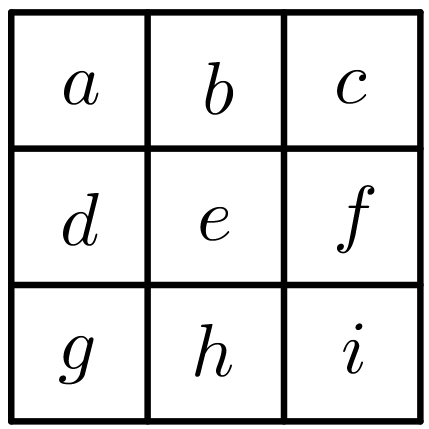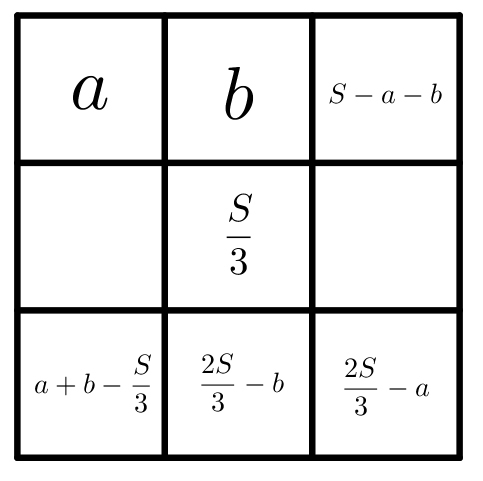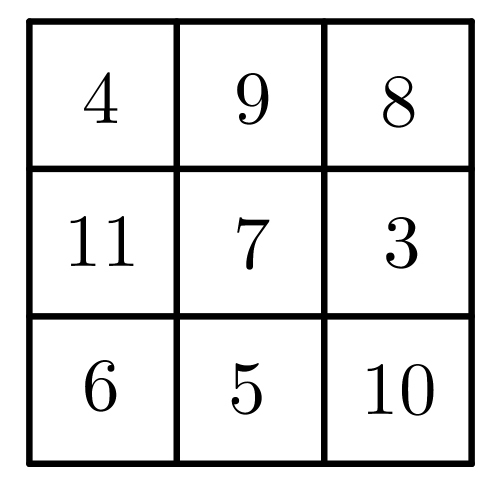Magic square - 3.0
The figure below shows a
magic square.

If and , then find the maximum value of
Note :
The answer is 140.
This section requires Javascript.
You are seeing this because something didn't load right. We suggest you, (a) try
refreshing the page, (b) enabling javascript if it is disabled on your browser and,
finally, (c)
loading the
non-javascript version of this page
. We're sorry about the hassle.
If the sum of three numbers in the same row/column/diagonal is S , then
( a + b + c ) + ( c + f + i ) + ( i + g + h ) + ( a + d + g ) = 4 S = 2 a + 2 c + 2 g + 2 i + b + d + f + h = 2 ( a + i ) + 2 ( c + g ) + ( b + h ) + ( d + f ) = 2 ( S − e ) + 2 ( S − e ) + ( S − e ) + ( S − e ) = 6 ( S − e ) = 6 S − 6 e
4 S 4 S + 6 e 6 e e = 6 S − 6 e = 6 S = 2 S = 6 2 S = 3 S
So S = 3 ∗ 3 S = 3 ∗ e = 3 ∗ 7 = 2 1 = g + h + i .
Now we will prove that a 2 + b 2 + c 2 = g 2 + h 2 + i 2 . We can use the figure below.
Now a 2 + b 2 + c 2 = a 2 + b 2 + ( S − a − b ) 2 = S 2 + 2 a 2 + 2 b 2 − 2 a S − 2 b S + 2 a b and g 2 + h 2 + i 2 = ( a + b − 3 S ) 2 + ( 3 2 S − a ) 2 + ( 3 2 S − b ) 2 = S 2 + 2 a 2 + 2 b 2 − 2 a S − 2 b S + 2 a b
So we proved that a 2 + b 2 + c 2 = g 2 + h 2 + i 2 .
Now ( g + h + i ) 2 ⟹ 2 ( g h + g i + h i ) g h + g i + h i = 2 1 2 = 4 4 1 = g 2 + h 2 + i 2 + 2 g h + 2 g i + 2 h i = a 2 + b 2 + c 2 + 2 ( g h + g i + h i ) = 1 6 1 + 2 ( g h + g i + h i ) = 4 4 1 − 1 6 1 = 2 8 0 = 2 2 8 0 = 1 4 0
Note: Therefore the answer is 1 4 0 , which is possible: